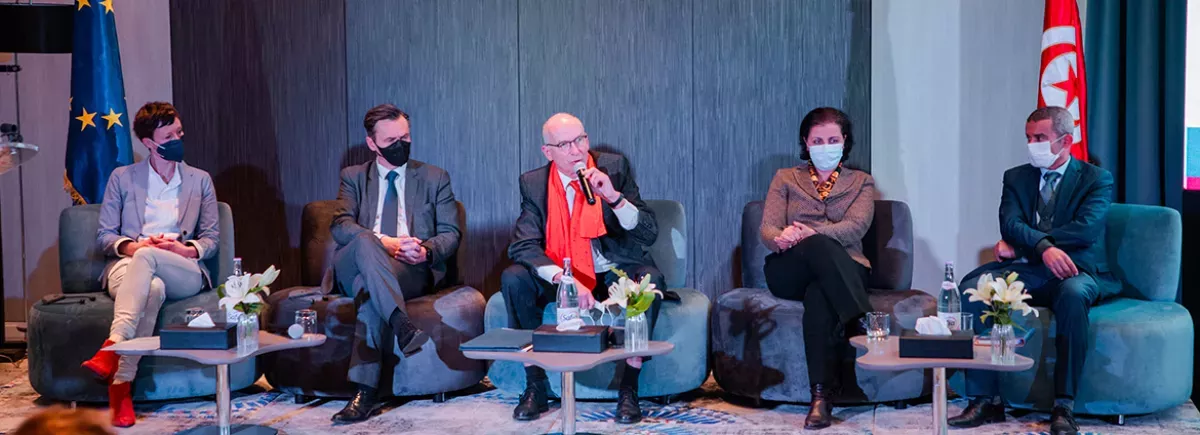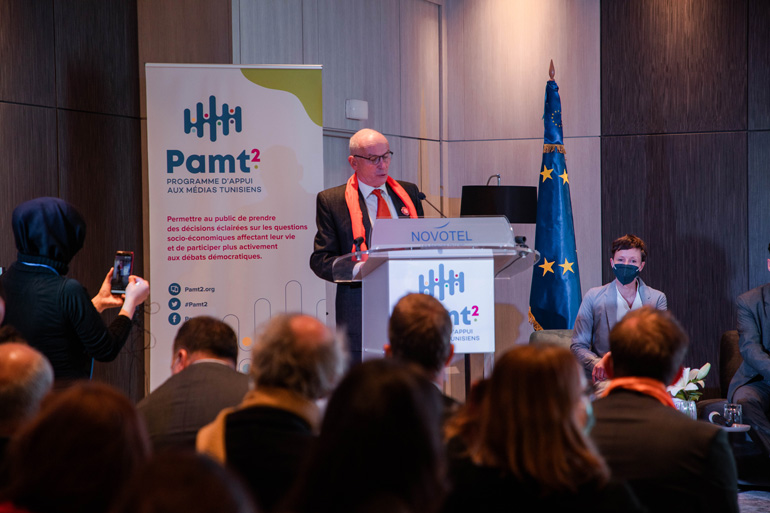
The European Union renews its support for Tunisian media with the launch of the PAMT2 programme
Related project
PAMT2His Excellency Mr Marcus Cornaro, EU Ambassador, officially launched the new PAMT2 Tunisian media support programme.
In his opening speech, he recalled that "in Tunisia, freedom of expression represents one of the major achievements of the revolution. Awareness of fundamental rights and freedoms has created new challenges for the media sector. The media are now called upon to play a contributory role in information, debate and the strengthening of democracy and fundamental freedoms. Free access to information and freedom of expression contribute to a culture of accountability and transparency — cornerstones of a nation's democratic life".
This new programme is a continuation of the European Union's previous Média UP Tunisian media programme (2017–2020) and, more broadly, fits within the framework of the PAGE programme (Programme d’appui à la gouvernance économique, or Economic Governance Support Programme).
Enabling the public to make informed decisions on socio-economic issues affecting their lives and to participate more actively in democratic debates
Ensuring citizens' full grasp and understanding of socio-economic issues is a challenge for the media in democracies, even as they seek new economic models in the digital age.
With a duration of five years and funding to the tune of EUR 4.5 million, this new programme benefits from technical assistance implemented in a consortium by specialised structures in the field of media development: CFI (Canal France international, France) and its partners ANSA (Italy), Article 19 (Tunisia), Deutsche Welle Akademie (Germany), France Médias Monde (France), INA (National Audiovisual Institute, France) and Thomson Media (Germany).
On the basis of the gains and lessons learned from the PAMT 1 programme, the European Union intends to provide multidimensional support to the media sector, whether public, private or associative. Through support with expertise, the programme's general objective is to enable the public to make informed decisions on socio-economic issues affecting their lives and to participate more actively in democratic debates. The programme will be structured around six areas of work:
1- Economic regulation and transparency, professional ethics
2- Public Service Media (PSM)
3- Management of private and associative media
4- Adapted and innovative content
5- Public communication and access to information
6- Media and Information Education (MIE)
This programme will be implemented in synergy and in conjunction with other European Union support and programmes in Tunisia.



